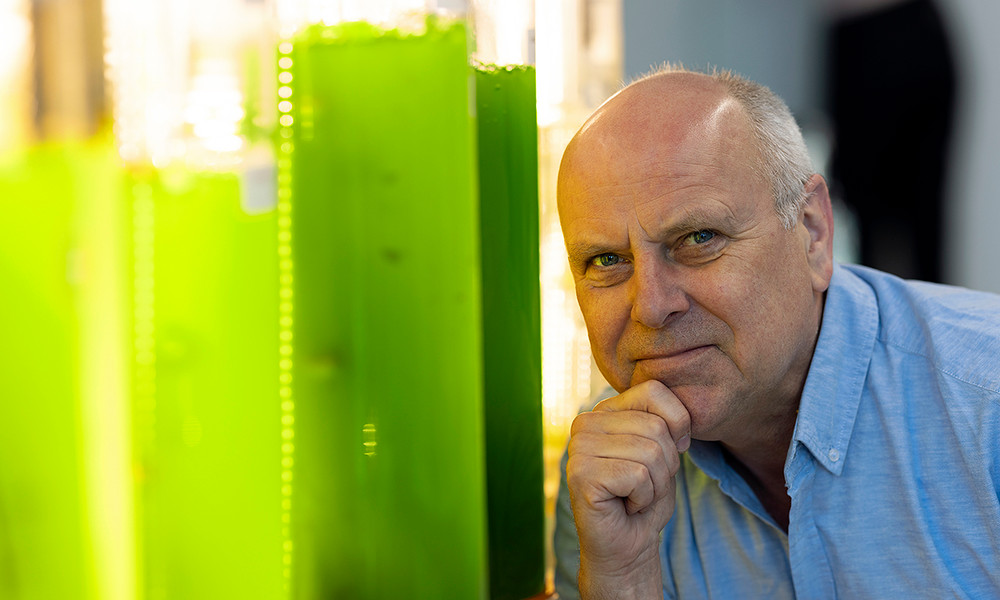From seaweed to circular and sustainable dairy farming? Challenge accepted!
- News

Is seaweed the key to dairy farming without soya, fertiliser and solving the manure surplus? And can you use this to make milk healthier and tastier? Together with thirteen organic farmers, the Hanze is investigating the possibilities of saline agriculture. From seaweed to circular and sustainable dairy farming...? Challenge accepted!
"Did you know that for every kilogram of cheese, one square metre of rainforest is sacrificed? This has everything to do with the soya in animal feed," says Rob van Haren, professor of Transition Circular Bioeconomy at Hanze. "Feed contains an average of 3.1 percent soya. This means that a livestock farm with a hundred cows takes up almost ten hectares of soya fields: places where there was once jungle."
Soya is crucial because it's packed with protein. But you can also get those proteins from other sources. From seaweed, for example, the 'Ulva Lactuca' in particular, better known as sea lettuce. Rob: "You can grow this seaweed on any farm with the manure produced by cows. That way, you not only make companies soya-free, but you also do something about the manure surplus."
Proteins from seaweed alone are insufficient for a balanced cow diet. "You can supplement this seaweed with home-grown grass clover cultivation. This way, you can produce soya-free, fertiliser-free, nitrogen-free and nature-inclusive. Thanks to the addition of seaweed, dairy products contain more Omega 3 fats: this makes cheese and milk a lot healthier."
It’s a good story. However, before cattle farmers can grow seaweed and cows eat sea lettuce, there is still a lot of research to be done and that's what the Hanze is working on. Rob: "Together with thirteen organic farmers in the north of the Netherlands, we are doing all kinds of experiments. For example, we are investigating how to fit grass clover and seaweed into the diet of cows. And what this means for the milk they give."
Seaweed is already daily fare on a number of farms. "We are learning more about how cows like to eat their sea lettuce: as a powder or as a crop. We are also investigating the effect of seaweed on the nutritional value of milk and mapping out where best to grow seaweed: on the farm itself or at a central location? Now that the sea level is rising and the land is salinizing, opportunities are also opening up here."
The feasibility study will continue for a few more years. Nevertheless, the first results are promising. Rob: "We held a cheese tasting in March with cheeses based on seaweed and grass clover." One of the conclusions? "According to experts, 'seaweed cheese' is a lot tastier. This ensures that sustainability literally and figuratively gives you a taste for more. That's also a win."
The great challenges of our time cannot wait. We need to act now to create a world worth living in and a sustainable future. And that is also possible in the North. Our region is bursting with opportunities: a strong SME as the engine of a powerful economy, innovative start-ups, and a strong knowledge network. Hanze connects, supports and drives positive change. We are here for everyone who wants to learn and make a difference to the world around them.
Will you take on the challenge with us?
How satisfied are you with the information on this page?